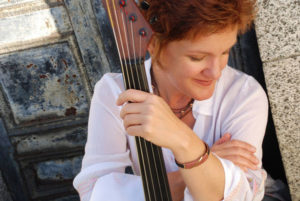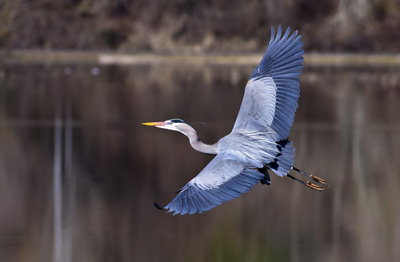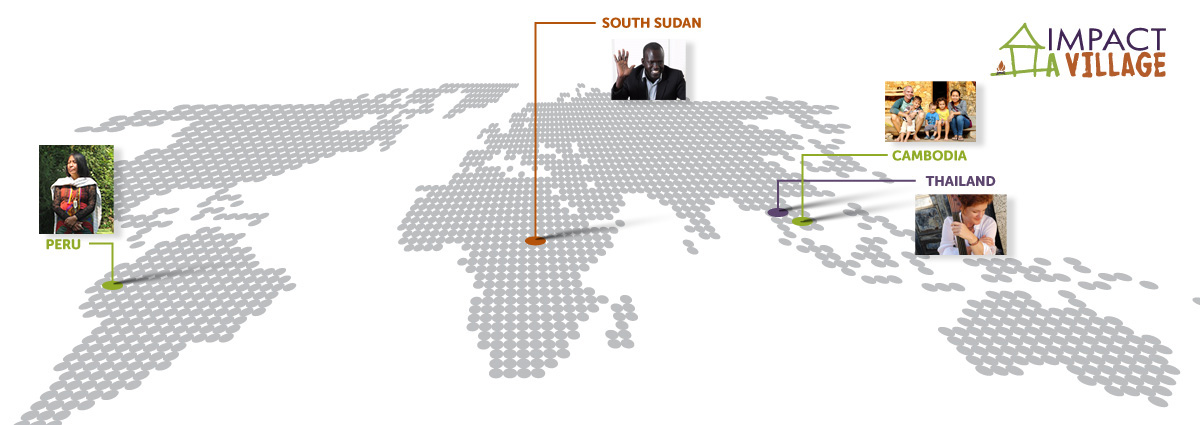Jami Sieber – Thailand
Jami Sieber, the ImpactAVillage cultural ambassador for Thailand, is the driving force behind the Mahout Village Project. This project funds school bus transportation for the village children of the mahouts (Elephant care takers) who work at the Thai Elephant Conservation Center. Jami is a brilliant acoustic/electric cellist, writer, lyricist, vocalist heard from continent to continent. How in the world does a world-famous musician become involved in the world of Mahouts and elephants? Her story is as magical as she is.
 Jami, what started you on this journey of music—primarily electric and acoustic cello and singing? When did you know this was your passion, your calling?
Jami, what started you on this journey of music—primarily electric and acoustic cello and singing? When did you know this was your passion, your calling?
I was born into music. My father was a conductor and musician and my mother was a singer, a great talent who could have gone far with her talent, but she gave it up to be a wife and mother. She had a beautiful voice and still does to this day. So it was natural for me to become a musician. And though I loved the cello I didn’t like the competition in the classical music world. Competing took the joy from me, and I just didn’t know what to do with it. So turned-off by it all, I shelved my potential musical career in high school and decided to study nursing instead. I had survived serious illnesses as a child, and it was the nurses who helped me. I never forgot them and their selflessness serving others. So I became a nurse, too. But fate stepped in. While in the nursing arena I met guitarist, singer/songwriter, Charlie Murphy. A like-minded soul, we were instant simpatico. Charlie spoke my musical language. He created spiritual and mostly earth-centered music and said that he always wanted to perform with a cellist. I knew from a deep place within that we could easily collaborate; and soon we began touring together.
It wasn’t long before I realized how music is an international language. This was what I longed for when I first started out as a musician; not competition, but rather embracing the power to bring people together in beauty and comfort, healing, transcending all wounds. I found a way to use my love for healing and performing and being of service to uplift others. Soon I quit the field of nursing (though the healing part was very much who I was and am) and began touring with Charlie. We toured for over 20 years as a duo and then with a bunch of terrific musicians we formed a rock band called “Rumors of the Big Wave.†Known on the West Coast for performing social transformation, we were bringing together and fighting for good in the world—gay and lesbian rights, the environment, inclusiveness—everything that we were and believed in.
By 1995 I left the band (Charlie eventually died of ALS) and just started composing my own work, first a piece for a dancer and then it just kind of went from there—one door opened to another. I’m so grateful for the richness of my musical career.
What is it about the cello that resonates with you more than any other instrument?
The cello has the same resonance as the voice—something that comes into our heart, our body; it’s the sound of the mother, the lover, our own voice with that same tone and frequency of range that’s familiar.
My father took me to a concert when I was a child, and the cellist enchanted me. I’d never heard such a beautiful sound. It was so pure, so simple. Today, one of the guiding principals in my music is to simplify and focus on that one note or that one, simple passage and let it take me on a journey.
We’re always looking to make life complex, and yes, there are sometimes complex situations we have to navigate but where can I simplify that is my challenge. There is such freedom in that.
Who or what has been your greatest teacher?
I’ve had so many. But I’d have to say my parents. They gifted me with so many aspects of who I am today. My father gave me such zeal and ever-present wonder and curiosity; to not be afraid and not settle for less. And my mother taught me kindness and love and to recognize the strength of family, not just my blood family but my community family as well. And together they both gave me the gift of music.
What do you love the most about music?
Its collaborative capacity to bring people together—to open the mind and heart. Look what music is doing to help evoke memory, delight in those with Alzheimer’s. It’s astounding.
What started you on the journey of elephants and the Mahout Village Project?
I was invited on a tour to the Balkans. It involved theater and dance and singing with an entire group of women from that part of the world. And before every performance we women would all sit together and they would tell us their harrowing stories; all that they experienced before and during the wars and how they are doing all they can to rebuild their shattered communities in Bosnia, Croatia and Kosovo. Their stories were so raw and emotional and surreal that they devastated me and I became deathly ill—leveled by a deep emotional, physical and spiritual collapse. I went home determined to give up music and return to nursing. I felt so helpless wanting to save others.
Yet again, my musical muse stepped in. Just as I was about to change careers and put on my nurse’s cap I received a call from a friend from Thailand. He was directing a documentary about elephants and asked if I would create the music to accompany it.
Here I thought that music was my last swan song and soon found myself heading for Thailand with my partner, Agu, who is a lifelong elephant-lover. I couldn’t believe the impact of that experience being drawn into a greater love than I’ve ever felt meeting those magnificent animals up close. As I was performing there was one elephant whose trunk followed my bow back and forth so beautifully in synch that the Mahouts were as deeply moved as I was. We were all in tears.
The next day I was invited to play with the elephant orchestra–gongs, symbols, percussive–and something happened in that collaboration when music and sound and passion connected us. I felt as if my feet left the planet. And I knew then, as did Agu that I had to go back and raise money and spend time in their world. They were captive elephants—they were at a government tourist facility. The next year I did these house concerts and opened up people’s hearts. People were crying seeing and hearing them for the first time. It was haunting. I went back the next year and stayed for two months. My soul was shouting that I shouldn’t be with captive elephants. Am I exploiting them? I listened to whatever was coming to me.
I went home and created “Hidden Skyâ€â€”the cd all about my experience with the elephants—it was to bring attention to the plight of the Asian elephant and remind us of the natural world that we have forgotten.
Soon after that I started creating multi-media images and people began asking me to lead tours and while it took me a few years I was able to appreciate the power of the elephants as amazing teachers.
I just finished my 12th year of touring, and I’ve come to realize that not only is this a crisis of survival for the elephants but it’s also a crisis for the Mahouts taking care of them. Historically, they have been the companions/co-workers in every way the elephant has been used. Once revered, today the Mahouts are no longer respected, living humbly, struggling at the bottom of society–and yet they’re still taking care of one of the most noble animals on this planet.
Seeing how hard they work to care for such magnificent beings I wanted to help both humans and animals. The Mahouts need tremendous support. But I wondered what could I do to help build up their self-esteem and embolden their worlds? If I were to do a small project what could it be used for? The answer was clear. They needed financial help to get their children back and forth to schools. I discovered something else when reaching out to others for support of these Mahouts and their children. Even those in local villages nearby that didn’t have young ones of their own were supportive of the Mahout children and the need for easier access for their education. We’ve been growing this Mahout Project for three years now, with two of my dedicated friends helping to disperse the donations directly to the Mahouts. It’s been an extraordinary, relationship-building endeavor for all concerned.
With my continuous travels/tours to Thailand I don’t feel I’m saving the Asian Elephant but rather helping raise awareness of both humans and elephants; helping us as humans be better humans. We’re all so righteous and reactionary today. We need to find a way to come together again.
Elephants have that sense of dignity about themselves even when confined within chains; they still remain strong and graceful elephants. How can we as humans maintain our humanity within the chains of ourselves?
What excites you about the Mahout Village Project?
Helping the children and helping build self-esteem and pride within the Mahouts as they care for the elephants. A Happy Mahout is a Happy Elephant!
What is it about elephants that have touched your soul the most?
Their deep presence. I was on a walk with my group and one of the elephants walked by me and she looked at me—and in that moment I felt such a profound, deep connection; she saw right into my soul. The touch of their skin, the grace of their truck and their feet on the ground. They astound me. They’re strange/funny looking, but wow. Once you are standing in the presence of them they are beautiful and graceful; their padded feet land ever so gently. They are walking giants.
How has ImpactAVillage impacted your life?
ImpactAVillage has mirrored the model of village hearts. It mirrors what happens when you come together with an intention in mind that not only impacts the village but the Greater Village. Life. The generosity of Lisa’s Village has impacted me, the Mahouts and the bonds connecting each of us, but even more, Lisa’s passion and love for the arts has also been at the center—the very heartbeat of what is promoting this global healing and education who are benefitting because of her amazing non-profit.
The ImpactAVillage matching funds have definitely impacted my project and my life and the entire village.
How very, very grateful I am for that.
Do you have hope for elephants considering the fact that they are rapidly becoming extinct due to human poaching and encroachment, etc.?
My hope barometer changes day to day. I can’t hope but believe in our ability to act from our highest self. I get discouraged by greed. By selfishness. Nationalism. All of it. And yet I also travel in enough communities who I absolutely believe are changing the world for the better. Knowing and meeting them is what keeps me going. There is so much beauty in this world. All I have to do is close my eyes and feel the soul of the elephants or sit on a bamboo mat with my Mahouts and remember that this is so much greater than the despair that is being televised.
I have been inspired by the writings and teachings of so many but Agu and I say, “At least we have each other.†When all else is crumbling that is the most important. Keep breathing in to the love what we have. In the end it’s really all that matters.
The poem I call upon all the time to uplift my spirits and give me the perspective I so need is “The Peace of Wild Things†by Wendell Barry.
The Peace of Wild Things

When despair grows in me
and I wake in the middle of the night at the least sound
in fear of what my life and my children’s lives may be,
I go and lie down where the wood drake
rests in his beauty on the water, and the great heron feeds.
I come into the peace of wild things
who do not tax their lives with forethought
of grief. I come into the presence of still water.
And I feel above me the day-blind stars
waiting for their light. For a time
I re

